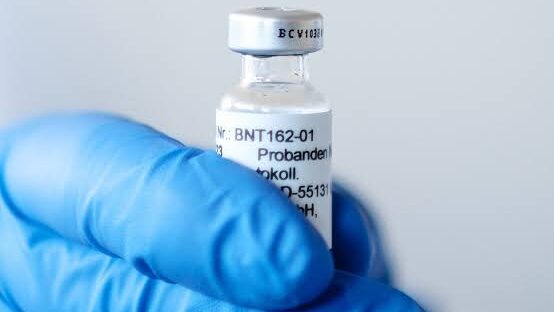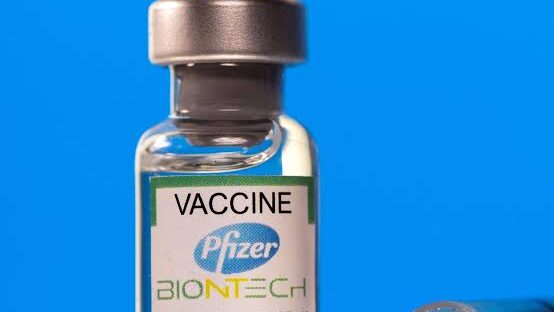The global fight against the COVID-19 pandemic has led to an unprecedented level of collaboration among governments, healthcare professionals, pharmaceutical companies, and researchers. A pivotal moment in this battle was the development and distribution of vaccines, with the Pfizer-BioNTech vaccine emerging as one of the most widely used and recognized options. The distribution and administration of the Pfizer vaccine in various regions, including Uptown Healthcare (Uptown HC), have played a crucial role in curbing the spread of the virus and protecting individuals from severe outcomes.
This article will explore the role of Uptown HC in administering the Pfizer vaccine, the logistics involved in delivering vaccines to communities, the significance of vaccination documentation (vaccine docs), and the broader implications of this effort in the context of public health.
The Role of Uptown Healthcare (Uptown HC) in Vaccine Distribution
Uptown Healthcare (Uptown HC) has been an integral part of the healthcare landscape, especially in the context of the COVID-19 pandemic. As a healthcare provider committed to delivering quality medical services, Uptown HC has played a pivotal role in the administration of COVID-19 vaccines, particularly the Pfizer-BioNTech vaccine, which was among the first to receive emergency use authorization by health authorities around the world.

In response to the global pandemic, healthcare institutions like Uptown HC have been at the forefront of vaccination efforts, partnering with governmental health agencies and pharmaceutical companies. These partnerships have allowed for the efficient and timely distribution of vaccines to the general public, aiming to mitigate the impact of the virus, protect vulnerable populations, and bring an end to the public health crisis.

Pfizer-BioNTech Vaccine: A Key Player in the Fight Against COVID-19
The Pfizer-BioNTech vaccine, also known as Comirnaty, has been one of the most widely used COVID-19 vaccines globally. This mRNA-based vaccine works by instructing cells in the body to produce a protein similar to the spike protein found on the surface of the SARS-CoV-2 virus. This triggers an immune response, allowing the body to recognize and defend against the virus if exposed in the future.

Clinical trials for the Pfizer vaccine demonstrated its high efficacy in preventing symptomatic COVID-19, as well as its ability to reduce the severity of the disease in cases of breakthrough infections. The vaccine has been authorized for use in a wide range of populations, including adults and adolescents, and it has been central to efforts to reduce the burden of the pandemic on healthcare systems.
For Uptown HC, administering the Pfizer vaccine to eligible individuals is a crucial part of its commitment to safeguarding public health. Vaccination clinics, both in medical centers and temporary setups, have been organized to ensure that as many individuals as possible have access to the vaccine.
Vaccination Documentation: The Pfizer Vaccine Doc
A critical aspect of the vaccination process is the documentation that accompanies the administration of the Pfizer vaccine. The “Pfizer vaccine doc,” often referred to as a vaccination certificate or card, is an important record for individuals who have received the vaccine. This document serves several purposes:
- Proof of Vaccination: The Pfizer vaccine doc provides individuals with official confirmation that they have received the COVID-19 vaccine. This proof has become increasingly important in various contexts, such as travel, access to certain venues, and participation in public activities that require vaccination for entry.
- Record of Vaccine Doses: The document typically includes information about the number of doses received, the dates of administration, and the batch number of the vaccine. For the Pfizer vaccine, two doses are typically required, spaced a few weeks apart, and the vaccine doc will reflect both doses, ensuring that the individual has completed the vaccination regimen.
- Health Monitoring: In addition to serving as a record of vaccination, the Pfizer vaccine doc may also include information about potential side effects, follow-up appointments, and advice for individuals who may need to monitor their health following vaccination.
- Digital and Physical Copies: In many countries, the vaccination document is available both as a physical card and in digital form, allowing individuals to carry it on their smartphones. The digital version can often be integrated into digital health apps or used for verification through QR codes, providing convenience for individuals who need to present proof of vaccination.
For healthcare providers like Uptown HC, ensuring that patients receive and retain their vaccine docs is essential for maintaining an accurate record of vaccinations and for supporting public health initiatives.
Logistics and Challenges in Vaccination Administration
The administration of the Pfizer vaccine involves several logistical steps, each requiring careful planning and execution. From the storage and transportation of the vaccine to the actual vaccination process, every stage of vaccine distribution presents its own set of challenges.
- Cold Storage Requirements: The Pfizer-BioNTech vaccine must be stored at ultra-low temperatures, often requiring specialized freezers that can maintain temperatures as low as -70°C (-94°F). For Uptown HC, this means that facilities must be equipped with the necessary infrastructure to safely store the vaccine and ensure its stability.
- Supply Chain Coordination: The successful distribution of the Pfizer vaccine depends on a well-coordinated supply chain that includes procurement, transportation, and distribution to healthcare providers like Uptown HC. Timely delivery of vaccines to vaccination centers is crucial to ensure that appointments are kept and that individuals can receive their doses according to the prescribed schedule.
- Vaccination Sites: To effectively administer the vaccine to large numbers of people, Uptown HC and other healthcare providers have set up dedicated vaccination clinics. These sites need to be staffed with trained healthcare professionals, including doctors, nurses, and administrative staff, to handle the influx of patients and ensure that the process runs smoothly.
- Public Awareness and Outreach: Ensuring that the public is aware of the availability of the vaccine, the importance of vaccination, and the specific steps required to receive it is a critical part of the vaccination campaign. Uptown HC has been actively involved in public outreach, providing information through various media channels and community initiatives to encourage individuals to get vaccinated.
The Role of Uptown HC in Promoting Public Health and Safety
The efforts of Uptown HC in administering the Pfizer vaccine reflect its broader commitment to public health and safety. By providing access to the vaccine, Uptown HC helps to protect individuals from COVID-19, reduce the strain on healthcare systems, and contribute to the larger goal of achieving herd immunity.
Vaccination not only protects individuals from severe illness but also helps prevent the spread of the virus within communities. By reaching high vaccination coverage, the risk of outbreaks decreases, and the burden on hospitals and healthcare providers is alleviated.
Additionally, as the situation with COVID-19 continues to evolve, vaccination efforts play a key role in adapting to new variants of the virus. The widespread use of the Pfizer vaccine, along with ongoing research and booster shots, helps to ensure that the population remains protected against emerging strains of COVID-19.
Conclusion
The role of Uptown HC in administering the Pfizer vaccine is a testament to the healthcare sector’s resilience and adaptability in the face of a global pandemic. Through efficient logistics, careful documentation, and active public health outreach, Uptown HC has contributed significantly to the vaccination efforts that are vital in overcoming the COVID-19 crisis. The Pfizer vaccine doc, alongside the infrastructure and expertise required to distribute and administer the vaccine, continues to serve as a critical tool in the global effort to combat the pandemic and safeguard public health.
Do follow Uae stories for more Updates














